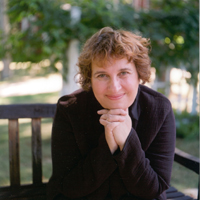S.N. Goenka, who died September 29, was my very first meditation teacher. I went to India in 1970, when only 18, specifically to study meditation. Goenka-ji had been living in Burma, raising a family and building a successful business, and for many years also deepening his meditation practice. Shortly before I arrived in India, he himself arrived in India in order to visit his mother, who had been ill. Our paths converged in Bodhgaya, the town that surrounds the tree the Buddha is said to have been sitting under when he became enlightened.

I was moved to travel there by an Asian philosophy course I had taken that laid out two pillars of the Buddha’s teaching: first, an unashamed, unafraid acknowledgment of the suffering in life; and second, a conviction that we can do something about our unhappiness. Like many, I had already suffered mightily even by the age of 18—my parents divorced when I was 4, my mother died when I was 9, my father had a severe mental illness—and, like many, I viewed my pain as shameful and isolating, rather than as a source of compassion and connection to others. Not a single person I knew openly admitted that suffering was a part of life, but apparently the Buddha had had no such compunctions.
And there was the revolutionary idea that we can affect our pain—not the pain of circumstance, which might always occur—but we can transform the ways we relate to our own and others’ difficulty to transform our lives. The breathtaking part of the Buddha’s vision was that no one was left out of this possibility—you didn’t have to be a special person or lucky person or have really great parents who didn’t die young or drink too much or struggle with terrible demons. You just had to find the tools (also known as meditation) to change the habits of your mind, and apply them. I left for India the first chance I got.
I met Goenka-ji in January 1971, when I entered a 10-day intensive meditation retreat he guided. I hadn’t meditated before for one single second. Goenka-ji himself fascinated me. He seemed so … whole. It didn’t look like he was shaped by the expectations of others. He talked freely about pain and suffering, yet seemed so happy. He posited a world where we grow closer to one another through our shared vulnerability to change and loss. He so much embodied the ancient teachings of the Buddha, yet insisted on a completely inclusive, secular, contemporary approach. The first night of the retreat he said, “The Buddha did not teach Buddhism, he taught a way of life.”
Goenka-ji was a jolly-looking man with a sonorous voice and fluent but somewhat simplistic English (“Clean up your dirty minds,” was one of his sayings, pointing to the incredibly nuanced purification process that accompanies meditation). He was kind of ordinary yet not ordinary at all. A friend said to me, “It’s like you can see the compassion shining out of his skin.” I had never experienced anyone like him.
Though I went on to study with many other teachers and explore several methods of meditation, that first 10-day retreat remains the singular turning point of my life—I’ve never turned back.
Now, more than 40 years later, we live in a world where the United States government has shut down, where we have incredible ways to communicate with one another yet so rarely truly communicate, where the earth itself is nearly overcome by our greed, hatred, and delusion. I think of those timeless truths Goenka-ji spent his life counseling. We have the potential to be whole, without an endless need to acquire more and more. We can acknowledge pain and suffering and still be happy, because we learn to hold life with compassion instead of bitterness. We are all vulnerable and can live as “we” rather than “us and them.” We can participate in spiritual teachings without being insular and separate. We can learn to clean up our dirty minds, so to speak, and not be driven by what we’re simply used to.
Today an estimated 1 million Americans learn meditation each year. There are many styles and lineages represented in that number, but Goenka-ji’s role in that statistic is extraordinary, both through his direct instruction and through the work of those whom he influenced. Even now that he has died, in this very shaky time where we need both inner strength and one another, I would bet that his influence will grow and grow.






